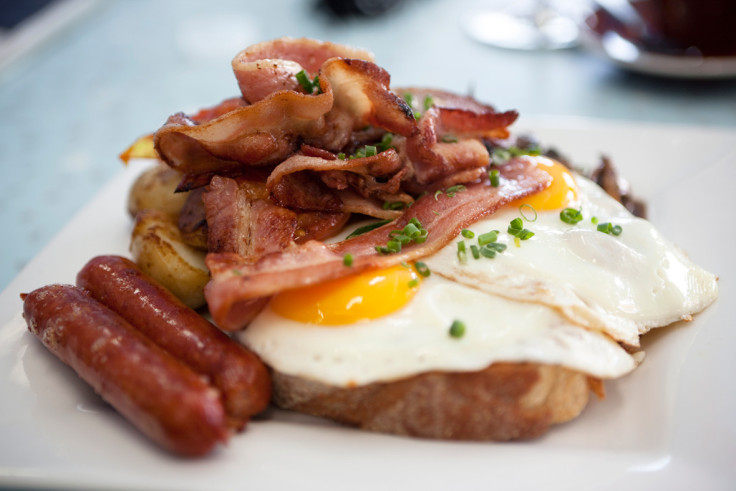Hard Brexit, dearer breakfast? No trade deal could increase the cost of a full English
KPMG report warns cost of basic ingredients could jump 13% under WTO rules.

Having a traditional British fry-up could be about to become more expensive, should the government fail to agree a trade agreement with the European Union by March 2019.
According to a KPMG report, post-Brexit the cost of a typical basket of breakfast ingredients could rise by almost 13% to £26.61.
Should Britain and the EU not agree a trade deal, the UK is widely expected to default to the World's Trade Organisation (WTO) custom rules. That, however, would deal a severe blow to households' budgets already under pressure, KPMG said, indicating that families would have to pay above-inflation prices for essentials such as olive oil, bacon and fruit juices.
The accountancy firm estimated that a 300g pack of Danish bacon would cost £2.18, compared to the current £2, while the price of a litre of Italian olive oil would rise to £4.18 from £3.60. Meanwhile, the cost of a litre of orange juice produced in Spain and bottled in Ireland would rise from 79p to 93p, while a 500g pack of French butter would rise by 25% to £4.08.
KPMG said its calculations were based on the cost of mid-range ingredients for a traditional fry-up from a UK supermarket, to which it applied the current EU external customs tariffs and the grocer's price mark-up.
Ingredients such as white bread, eggs and milk were all sourced in Britain and therefore exempt from increased tariffs.
"WTO tariffs could have a significant impact on both consumers and retailers alike – totting up consumer price tags and further squeezing retail margins," said KPMG director Bob Jones.
"It's important to remember that our analysis does not even reflect the steep costs consumers and retailers are already facing as a result of the pound sterling's devaluation or the costs of any new non-tariff barriers."
In the 13 months since Britain voted to leave the EU, the pound has lost approximately 13% of its value, while inflation surged to a four-year high of 2.9% in May and it has been above the Bank of England's 2% target since March.
The rate of inflation stood at 0.3% in May last year and the sharp increase, coupled with persistently subdued wages, has put households' budgets under severe pressure.
KMPG warned that should Britain and the EU fail to reach a trade deal before the deadline for the Brexit negotiations, food and drinks items imported in the UK would be among the hardest hit from higher tariffs.
"If the UK leaves the EU without a trade deal or transitional agreement, we can expect both higher prices and a huge spike in red tape at the borders," Jones said.
"The top priority for businesses is to fully understand their own supply chains: the volumes and values of the goods they ship back and forth and which countries they're importing to and from."
So far, supermarkets have avoided passing on increasing costs to their customers, but that could change abruptly if the UK leaves the EU without a deal.
"The British consumer has become accustomed to seasonal produce all year round and has binged on a diet of discounts for some time," said KPMG UK head of retail Paul Martin.
"Shoppers could be forgiven for overlooking the significant impact customs will have on the prices they pay at the till. However, against a backdrop of increasingly squeezed margins, it is unlikely retailers will be able to hold the flood on higher costs indefinitely."
Last week, Michael Barnier, the European Commission chief Brexit negotiator rubbished the idea that Britain could have "frictionless trade" with the bloc after Brexit.
In a speech to business and union leaders in Brussels Barnier said frictionless trade was "not possible" with a country outside the EU's single market and customs union.
Leaving these two agreements are a central part of the Brexit negotiations laid out by Prime Minister Thersea May.
Brexit Secretary David Davis has said a new trade deal should deliver the "exact same benefits" as single market membership.
© Copyright IBTimes 2025. All rights reserved.






















